Unlocking the Mysteries of Binchotan Charcoal: Japan's Secret Treasure
Unlocking the Mysteries of Binchotan Charcoal: Japan's Secret Treasure
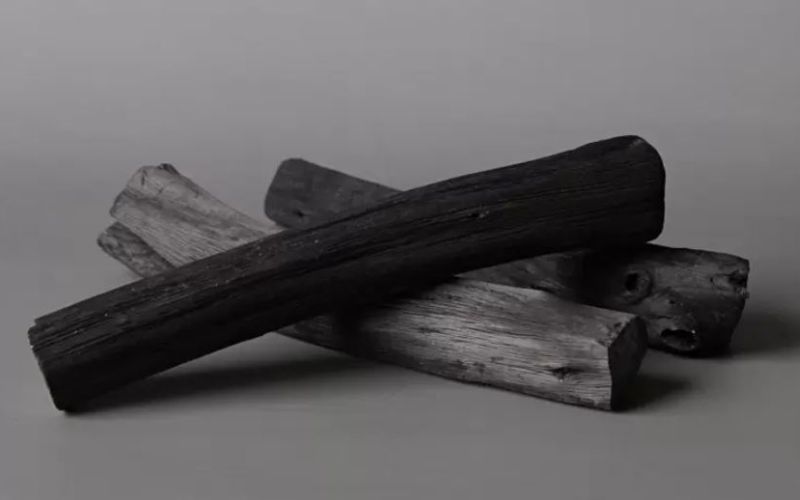
In the world of culinary arts, there exists a material so revered, so mystical, that it has garnered a cult-like following among chefs and enthusiasts alike. This material is binchotan charcoal, a traditional Japanese charcoal renowned for its purity, long burning time, and ability to enhance flavors. Let's delve into the fascinating world of binchotan charcoal and uncover the secrets behind its allure.
What is Binchotan Charcoal?
Binchotan charcoal, also known as white charcoal, is a type of charcoal traditionally made in Japan. It is produced through a meticulous process of burning oak branches at extremely high temperatures (over 1000 degrees Celsius) and then rapidly cooling them. This process results in a charcoal with a high carbon content and low impurities, giving it its distinctive white color and exceptional properties.
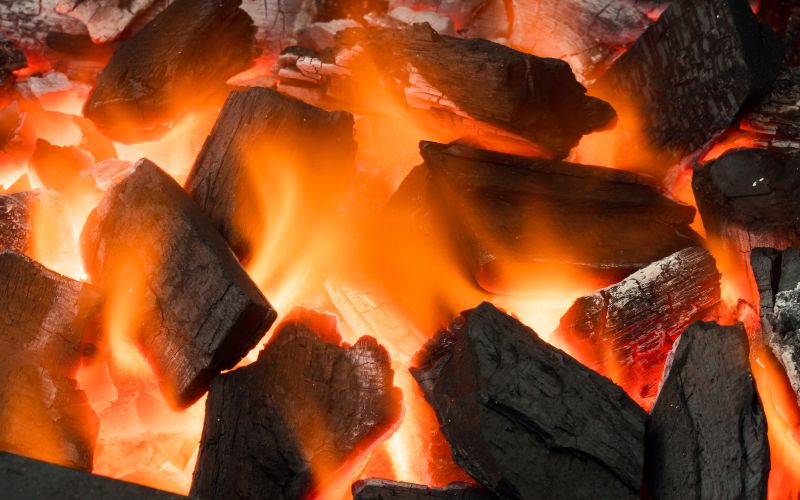
Binchotan is porous, and when viewed under an electron microscope, countless pores can be observed that run the length and breadth of the body. Binchotan has an excellent adsorption effect, and microorganisms are said to decompose various substances. It has high hardness and makes a metallic sound when tapped. The luster of its fine and smooth cross section is evidence of its hardness, hardening, and good quality.
The Making of Binchotan Charcoal
The production of binchotan charcoal is a labor-intensive craft that requires skill and patience. It begins with the selection of high-quality oak branches, typically from ubame oak or mizunara oak trees. These branches are stacked in airtight kilns and heated in the absence of oxygen, a process known as carbonization. This prevents the wood from fully combusting and instead transforms it into charcoal.
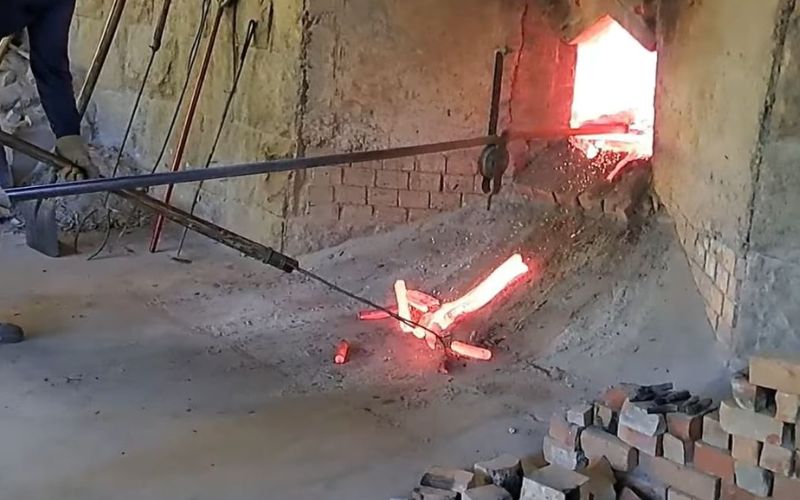
The key to producing binchotan charcoal lies in the precise control of temperature and airflow during the carbonization process. Too much heat or oxygen can result in lower-quality charcoal with impurities and a shorter burning time. Skilled artisans carefully monitor the kilns for several days, adjusting the conditions as needed to achieve the desired quality.
Once the carbonization process is complete, the charcoal is rapidly cooled, typically by dousing it with water or sand. This sudden cooling solidifies the carbon structure, giving binchotan its characteristic hardness and density.
Properties and Benefits
Binchotan charcoal is prized for its unique properties and numerous benefits:
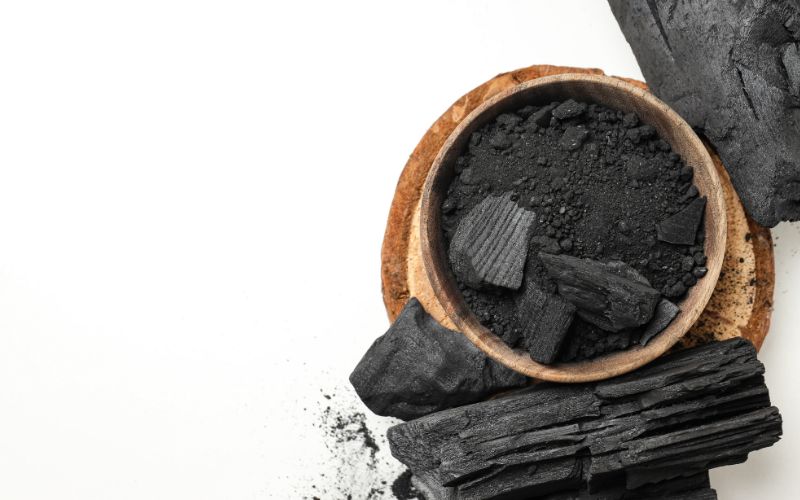
1. Purity:
Binchotan charcoal is almost pure carbon, with minimal impurities. This purity not only contributes to its clean-burning properties but also makes it ideal for purifying water and air.
2. Long Burning Time:
Thanks to its dense structure, binchotan charcoal burns at a low, steady temperature for an extended period, making it perfect for grilling, smoking, and slow-cooking.
3. Enhanced Flavor:
When used for cooking, binchotan charcoal imparts a subtle smoky flavor to food without overwhelming it. Its even heat distribution ensures thorough cooking and caramelization.
4. Water Purification:
Binchotan charcoal has been used for centuries in Japan to purify water. Its porous structure adsorbs impurities, toxins, and odors, leaving behind clean, refreshing water.
5. Air Purification:
Beyond its culinary uses, binchotan charcoal is also employed as a natural air purifier. Placing a stick of charcoal in a room can help absorb odors, moisture, and harmful chemicals, promoting a healthier indoor environment.
Culinary Applications
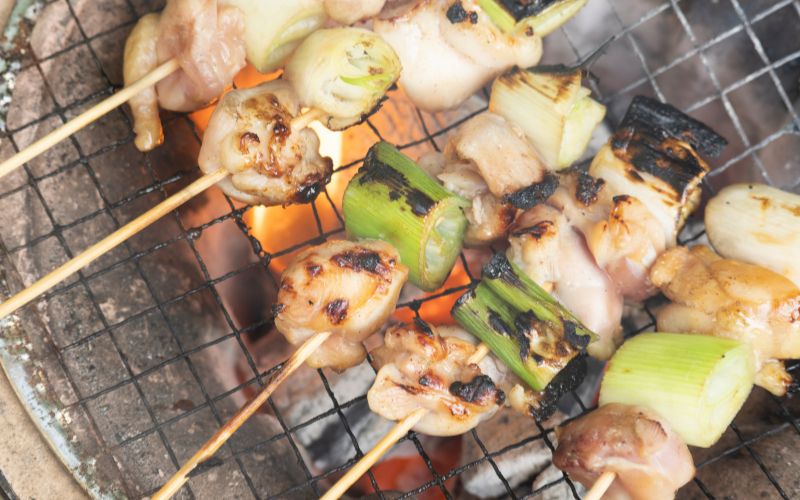
In Japanese cuisine, binchotan charcoal is highly prized for its ability to elevate the flavors of grilled and simmered dishes. Its long, steady burn and minimal smoke production make it ideal for grilling delicate ingredients such as seafood, vegetables, and meats. The high heat it generates produces a crisp exterior while sealing in moisture and natural juices.
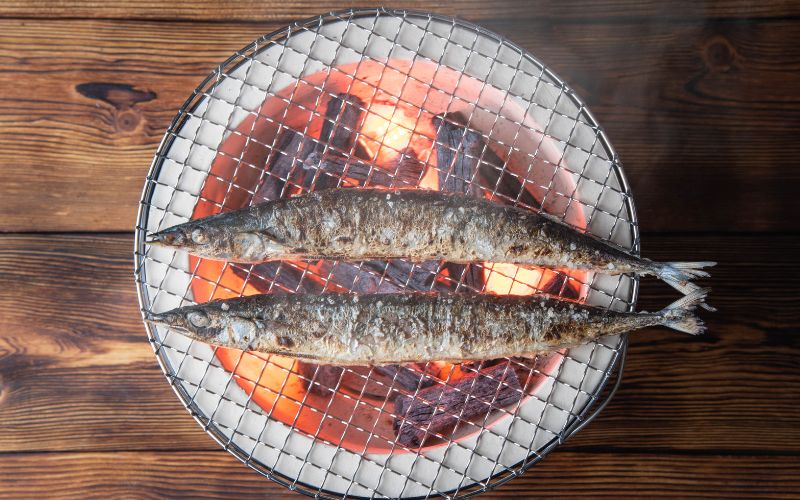
Binchotan charcoal is also used in traditional Japanese cooking techniques such as robata (grilling over charcoal) and sumibiyaki (charcoal grilling). Its clean-burning properties and lack of impurities ensure that it won't impart any unwanted flavors to the food, allowing the natural ingredients to shine.
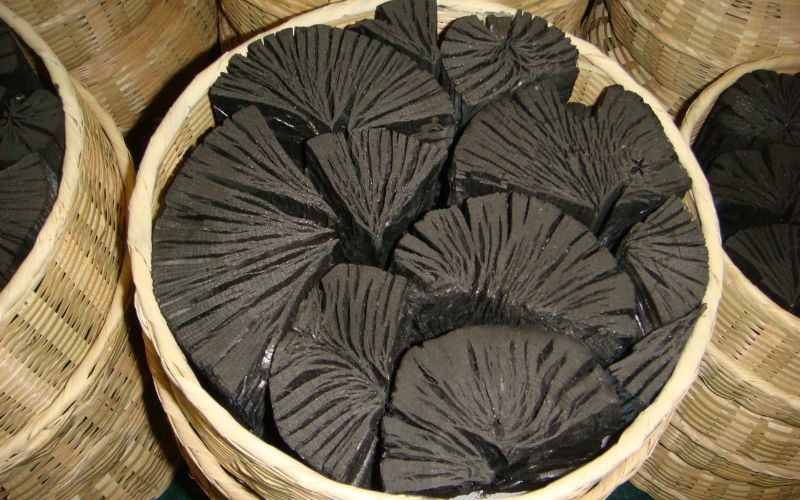
Binchotan charcoal is more than just a cooking fuel; it's a symbol of craftsmanship, purity, and tradition. Its unique properties and versatile applications have made it a cherished ingredient in Japanese cuisine and a coveted item among chefs and food enthusiasts worldwide. Whether grilling the perfect steak or purifying drinking water, binchotan charcoal continues to captivate with its mystique and timeless appeal.
So, the next time you fire up the grill or pour yourself a glass of water, consider the transformative power of binchotan charcoal and the centuries-old tradition it represents.
Binchotan Charcoal Pumice Stone
You can fine more Binchotan charcoal products on our store on Amaon.com! 😊

Facebook Comments